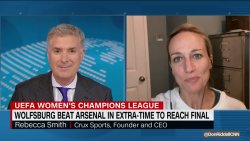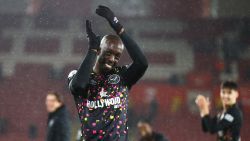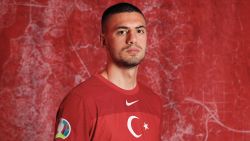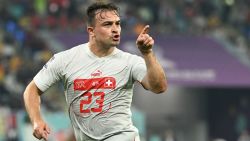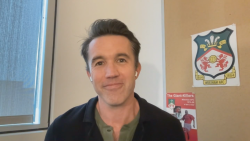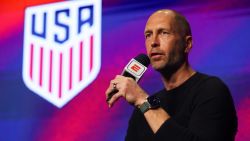When Kepa Arrizabalaga signed for Chelsea from Athletic Bilbao, few fans will have been thinking about where their newest recruit is going to live.
Most won’t concern themselves with whether the player had time to pack a suitcase before their move, or how he will adapt to driving on the other side of the road.
These responsibilities fall on the shoulders of the player liaison officer, the person hired to make sure new signings feel at home in their new club and city.
“Sometimes a player can give the impression of having a lot of bravado,” Lorna McClelland, widely considered the English Premier League’s first ever player liaison officer, told CNN Sport. earlier this week.
READ: Arrizabalaga pays $91 million release clause
READ: American billionaire Stan Kroenke makes $777m offer for 100% ownership of Arsenal
READ: Usain Bolt earns ‘indefinite training period’ with Australia’s Central Coast Mariners
“It’s a very macho environment and it’s important for him to feel that he can function in that environment. But players do need help behind the scenes, things happen in their lives as they do in everybody else’s lives,” added McClelland, who worked for Aston Villa between 2002-2016.
“Sometimes they come from abroad, sometimes they’ve had the benefit of a good education, but some haven’t and so the whole package is quite difficult for them to get to grips with when they first come.
“A good player liaison officer and a good club will help him to achieve that.”

Chelsea paid $91 million to Bilbao for Kepa’s services, a world record fee for a goalkeeper.
Though there is clearly the need to look after the player in a personal capacity, McClelland emphasizes the importance of the player liaison officer given the investment clubs make in players.
“Anyone with a modicum of sense who’s looking after a financial asset will make sure that they’re cared for,” McClelland also told the Guardian in a recent interview. “If a player’s unhappy, he’ll leave.
“For me it’s always been important for someone to be there if a big issue comes up in a player’s life. Perhaps someone in their family has died or there’s been an emergency.
“I was there if they wanted to phone me.”
Support network

While they now be commonplace in the sport – some clubs can hire multiple player liaison officers at any one time – this hasn’t always been the case.
When Premier League club Aston Villa signed striker Juan Pablo Angel for a club-record fee in 2001, family issues upon his arrival were seen to hinder the Colombian’s performances on the pitch.
Then-manager Graham Taylor decided to appoint a player liaison officer, McClelland, to help future signings settle in easier at the club.
“It’s very stressful, sometimes they don’t know they are coming until the very last minute and they’re told to get into a taxi in 20 minutes’ time – sometimes they don’t even have a chance to pack a suitcase,” McClelland, who founded and now works for GCSportsCare, an organization which provides advice and support for athletes, explained.
“I’ve dealt on many occasions with players who have just come from abroad – again, this doesn’t just apply to foreign players but particularly to foreign players – and come without a suitcase.
“They’ve got no toothbrush, they’ve got no clothes and suddenly they’re parachuted into a new environment, into a different culture, different climate, different languages, his family is not there, his friends aren’t there and all his support network that he’s used to had gone, so the club has to provide that support network.”
While players moving to top-level clubs are provided extensive support, sometimes, for a multitude of reasons, a certain transfer won’t work out.
One of the most common barriers when switching countries is the language, something which reportedly hindered Iago Aspas following his transfer to Liverpool in 2013.
Gilberto Silva, a former Brazilian footballer and part of Arsenal’s “Invincibles” season, now acts as a consultant for current professionals and says learning English was the first piece of advice he gave to compatriot Fred before his move to Manchester United.
“Learning the language was key to make his life easier in his new home,” Gilberto told the Guardian in a recent interview. “I can say he arrived in Manchester with much better English than me when I went to London.
“Now he should take advantage of what he already knows to seize the great opportunities the country has to offer, mainly related to cultural learning.”
Watch CNN World Sport’s full interview with McClelland above.


